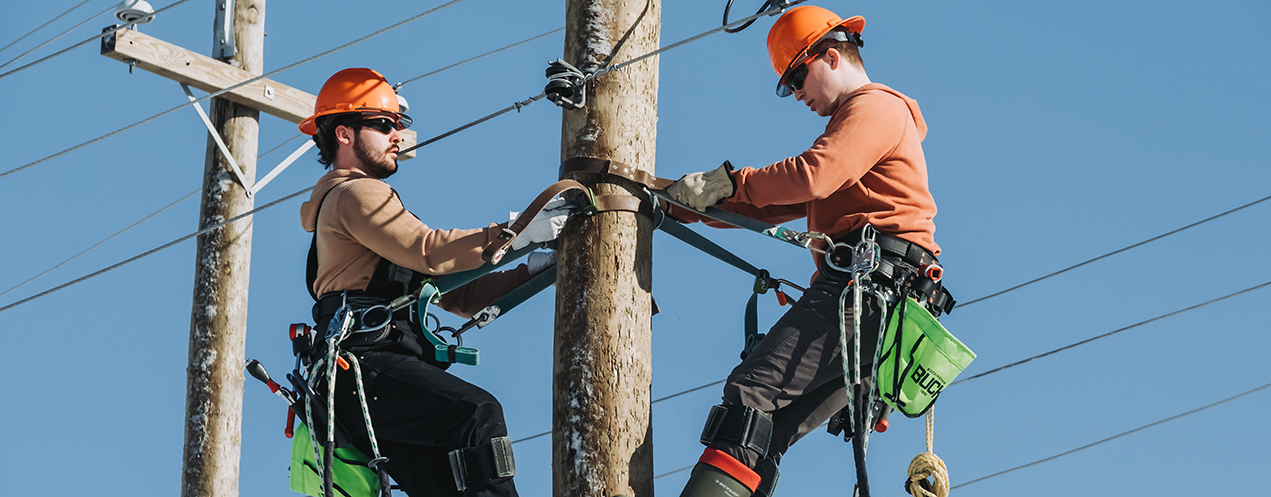Applications now closed
Applications for pre-screening closed as of November 7, 2025.
About the program
The Power and Utility Line Work program offers hands-on, practical training in pole climbing, electrical theory, equipment use and safety procedures. You build foundational skills needed to work in the power utility sector, supported by experienced instructors. This 1-year training is delivered at NSCC Sydney Waterfront Campus with funding support from industry partners: Nova Scotia Power and Connect Atlantic Utility Services.
Utility line workers are in high demand, especially in the Cape Breton area. Employability in the trade is very high, and Nova Scotia Power is a significant employer of Powerline Technicians in our province, many of whom are graduates of the NSCC Utility Line Work program.
Program information
This program is delivered at NSCC Sydney Waterfront Campus.
- Delivery: In-person, full-time training
- Duration: 1 year
- Start date: February 2, 2026
- Credential: Certificate
Visit the Power and Utility Line Work program page for a full overview, including admission requirements, work experience, tuition, course list and career opportunities.
Application process
UPDATE: Applications are now closed
To apply for this offering at our Sydney Waterfront Campus, you must complete the pre-screening process before being invited to apply formally through NSCC.
- Email your most up-to-date resume to
- Complete the application survey questionnaire
- Application for screening closes on November 7, 2025 at 11:59 pm (AST).
- We'll reach out to applicants who meet the screening criteria with the next steps
Note: Applicants' information will be shared between NSCC and Nova Scotia Power as part of the screening process.
Commitment to inclusive admissions
We encourage applications from all qualified candidates, including persons who identify as racially visible, Indigenous, persons with disabilities, women in underrepresented roles and members of the 2SLGBTQ+ community.
Applicants from these equity groups may self-identify through the online application. If you require accommodations during the application process, we encourage you to reach out for support.

